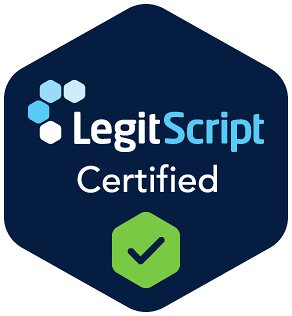It can feel like your mind is a whirlwind, thoughts racing and focus fleeting. If you’re navigating life with ADHD, you know these challenges all too well. You’re not alone, and the desire for clarity and calm is a powerful first step towards healing. At HU Center, we understand the unique experiences of adults with ADHD, including those who may have faced trauma. We appreciate your courage in seeking support, and we’re here to walk alongside you on your journey to well-being.
This blog explores treatment and therapy for ADHD, offering insights into effective options that can help you manage your symptoms and build a more fulfilling life.
Understanding Treatment and Therapy for ADHD
Treatment and therapy for ADHD in adults often involves a multi-faceted approach, tailored to individual needs and challenges. It’s not a one-size-fits-all solution, and what works best can vary from person to person. The goal of treatment and therapy for ADHD is to reduce the impact of ADHD symptoms on daily life, improve functioning, and enhance overall well-being.
Here are some key components of effective treatment and therapy for ADHD:
- Medication: For many adults, medication can be a helpful part of treatment and therapy for ADHD. Stimulant and non-stimulant medications are often prescribed to help improve focus and reduce impulsivity. It’s crucial to work closely with a healthcare professional to determine if medication is right for you and to find the most effective type and dosage.
- Therapy: Various forms of therapy play a vital role in treatment and therapy for ADHD. These therapies help individuals develop coping mechanisms, manage emotional challenges, and improve organizational and time-management skills.
- Cognitive Behavioral Therapy (CBT): CBT is a type of therapy that focuses on identifying and changing negative thought patterns and behaviors. In 1 the context of treatment and therapy for ADHD, CBT can help individuals manage inattention, impulsivity, and hyperactivity by teaching practical strategies and skills.
- Dialectical Behavior Therapy (DBT): DBT, initially developed for borderline personality disorder, has also proven beneficial in treatment and therapy for ADHD, particularly for individuals who experience emotional dysregulation. DBT skills training can help manage intense emotions, improve relationships, and increase distress tolerance.
- Mindfulness-Based Practices: Mindfulness techniques, such as meditation and mindful awareness, can be valuable tools in treatment and therapy for ADHD. They help individuals increase their attention span, reduce impulsivity, and manage stress by focusing on the present moment without judgment.
- Coaching: ADHD coaching provides practical support and guidance in areas such as organization, time management, goal setting, and problem-solving. It’s a collaborative approach that empowers individuals to develop strategies to navigate daily challenges associated with ADHD.
- Support Groups: Connecting with others who understand the challenges of ADHD can be incredibly helpful. Support groups offer a space to share experiences, learn coping strategies, and build a sense of community. This can be a vital part of the overall treatment and therapy for ADHD journey.
- Lifestyle Adjustments: Making healthy lifestyle choices can significantly impact ADHD symptoms. This includes maintaining a balanced diet, getting regular exercise, ensuring sufficient sleep, and reducing stress. These adjustments can complement other forms of treatment and therapy for ADHD.
The Importance of Personalized Treatment and Therapy for ADHD
It’s essential to remember that effective treatment and therapy for ADHD is highly personalized. What works well for one person may not be suitable for another. A comprehensive assessment by qualified professionals is the first step in developing an individualized treatment and therapy for ADHD plan. This assessment typically involves a review of your history, symptoms, and the impact of ADHD on various aspects of your life.
For adults who have experienced trauma in addition to ADHD, an integrated approach to treatment and therapy for ADHD is crucial. Trauma can often exacerbate ADHD symptoms and create additional emotional and behavioral challenges. Therapies that address both ADHD and trauma, such as trauma-informed CBT or EMDR (Eye Movement Desensitization and Reprocessing), can be particularly beneficial.
At HU Center, we recognize the complexities of treatment and therapy for ADHD, especially for adults who may also be navigating the effects of past trauma. Our experienced team is dedicated to providing compassionate and comprehensive care tailored to your unique needs. We believe in a holistic approach to treatment and therapy for ADHD, integrating various modalities to support your journey towards greater well-being and empowerment.
We understand that seeking treatment and therapy for ADHD is a significant step, and we commend your commitment to improving your life. Our services at HU Center are designed to provide a supportive and understanding environment where you can explore effective strategies for managing your ADHD symptoms and addressing any co-occurring challenges.
Conclusion:
You deserve to live a life where ADHD doesn’t hold you back. Understanding the available options for treatment and therapy for ADHD is the first step towards taking control. At HU Center, we are here to help you navigate this journey with personalized care and effective strategies. If you’re ready to explore how treatment and therapy for ADHD can make a positive difference in your life, we encourage you to reach out. Contact HU Center today to learn more about our services and how we can support you in achieving greater focus, calm, and fulfillment.
FAQs
Q. What are the main types of treatment for ADHD in adults?
A. Treatment and therapy for ADHD typically involves a combination of medication and therapy. Medication can help manage core symptoms like inattention and impulsivity. Various therapies, such as CBT and DBT, teach coping skills and address emotional challenges often associated with ADHD. Lifestyle adjustments also play a supportive role.
Q. How can therapy help with ADHD?
A. Therapy is a crucial part of treatment and therapy for ADHD. It helps adults develop strategies to manage their symptoms in daily life, improve organization and time management, and address emotional difficulties like anxiety or low self-esteem that can co-occur with ADHD. Therapy provides a safe space to learn and grow.
Q. Is medication always necessary for ADHD treatment?
A. Medication can be very effective in managing ADHD symptoms for many adults, but it’s not always necessary. The decision to use medication as part of treatment and therapy for ADHD should be made in consultation with a healthcare professional, considering individual needs and preferences. Therapy and lifestyle changes can be effective on their own for some.
Q. What if I also have a history of trauma? How does that affect ADHD treatment?
A. For adults with both ADHD and trauma history, an integrated approach to treatment and therapy for ADHD is essential. Trauma can complicate ADHD symptoms. Therapies that address both, like trauma-informed CBT or EMDR, can be particularly helpful in fostering healing and managing ADHD effectively.
Q. How do I know which treatment and therapy for ADHD options are right for me?
A. Finding the right treatment and therapy for ADHD is a personalized process. A comprehensive assessment by qualified professionals is the first step. They will consider your specific symptoms, history, and goals to create an individualized plan that may involve medication, therapy, or a combination of approaches.










